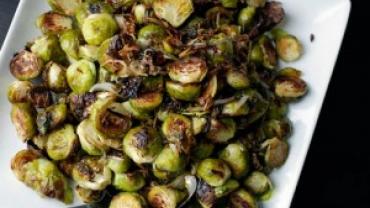
Did our mothers know more than they were letting on when they told us to eat our Brussels sprouts?
Diindolylmethane or DIM is a metabolite of the compound indol-3-carbinol found in cruciferous vegetables such as broccoli and cabbage. It is well-known for supporting healthy estrogen levels in both men and women. In women it favorably influences the ratios of estrogen metabolitesspecifically the 2-hydroxyestrone to 16I±-hydroxyestrone ratio while in men it functions as an aromatase inhibitor reducing the conversion of testosterone to estrogen.
Because of its favorable effects on hormone levels associated with certain types of cancer DIM has become a popular supplement in complementary and alternative medicine. However promising studies are showing that this isolated and concentrated natural substance may also be effective in the fight against cancers not usually associated with excess steroid hormones.
In a study on the effects of DIM on esophageal squamous cell carcinoma DIM was shown to induce cell cycle arrest and apoptosis in human cancer cells in vitro. It induced apoptosis by upregulating the activation of caspase-9 a proteolytic enzyme known to influence apoptosis. DIM inhibited the cell cycle and reduced cancer cell proliferation by reducing the expression of key regulatory proteins that induce the transition from one cell cycle phase to another. Another promising effect of DIM in human cancer cell lines is in reducing migration and metastasis. This was demonstrated in a study looking at human bladder cancer.
DIM also showed promise for nasopharyngeal carcinoma (NPC) a cancer (rare in the US) that is difficult to diagnose until the middle or late stages and whose long-term prognosis after conventional chemotherapy and radiation is usually poor. In human NPC cells in vitro DIM induced significant apoptosis while resulting in no observed damage to normal bronchial epithelial cells or liver cells. The same study looked at the effect of DIM on the development and progression of transplanted tumors in animals. Results indicated that tumors progressed more slowly in animals on feed containing DIM and the slowest in animals who had consumed feed supplemented with DIM for two weeks prior to tumor transplant.
Aside from its effects on hormone profiles another possible role for DIM in its possible protection against cancer is its antioxidant properties. Cancer is increasingly being seen not only as the result of damage and mutations at the DNA level but also potentially coming from dysfunctional mitochondria and accumulated oxidative stress. Under this paradigm strategies that protect mitochondrial health and reduce oxidative stress should exert some degree of chemoprotection. By inhibiting nuclear factor kappa B (NF-B) DIM is showing promise as an antioxidant.
When cooked properly cruciferous vegetables are delicious and not the over-boiled soggy sulfurous unpleasant-looking foods we had to choke down in order to get to dessert. If the wonderful flavor of roasted broccoli with garlic and red pepper or balsamic roasted Brussels sprouts isn't enough to make these foods staples at mealtimes DIM's promising effects against cancer give us an even better reason to consume more of these nutrient powerhouses and encourage our patients to do the same.